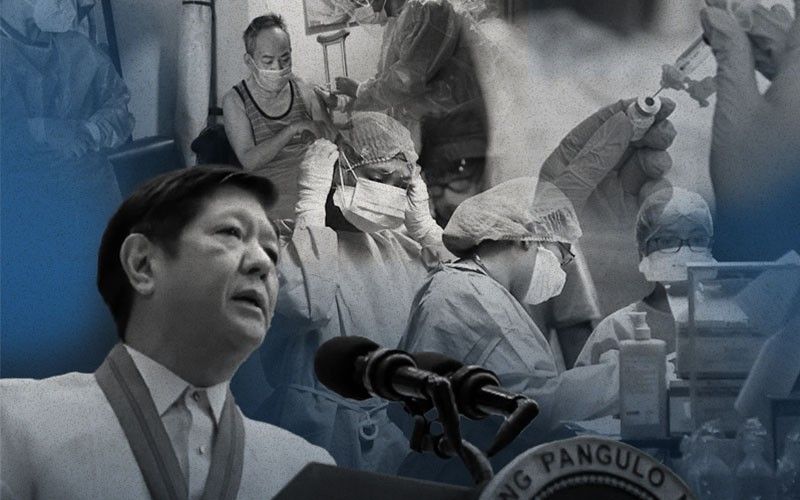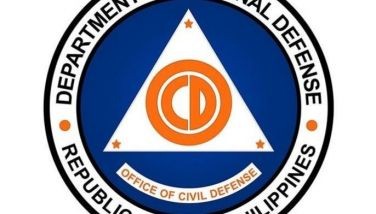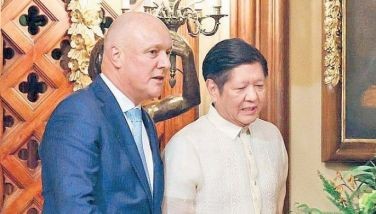Marcos' 1st 100 days: Still no health chief, eased mask rule

MANILA, Philippines — President Ferdinand Marcos Jr. said he was able to assemble the “best and brightest” people to serve his administration and put up a “functional” government during his first 100 days in office. But over three months into his term and amid an ongoing pandemic, the Department of Health is still without a secretary.
Undersecretary Maria Rosario Vergeire, a career official and the face of the government’s COVID-19 response, was designated as the agency’s officer-in-charge.
Even without an appointed secretary, the DOH’s COVID-19 pandemic efforts and programs on disease prevention and control and health promotion continue.
Tony Leachon, a former adviser to the National Task Force Against COVID-19, said the chief executive’s failure to name a DOH chief — one of the most important positions in the Cabinet — shows that health is not his top priority,
“All [Marcos] needs now is to name an agile, honest and competent secretary of health to show the people that he means business,” Leachon told Philstar.com.
In the first 100 days of the Marcos presidency, what did his government implement and miss in terms of responding to the pandemic and addressing healthcare woes?
Eased face mask rule
Marcos on September 12 signed an executive order making face masks voluntary in open and non-crowded outdoor areas with good ventilation.
People should still continue wearing face masks in indoor establishments, including public transportation, and in outdoor settings where physical distancing cannot be maintained.
The eased face mask mandate alarmed medical professionals, saying the policy change gives the impression that people should not be afraid of COVID-19 anymore.
But the position of the DOH was to keep the mask mandate even outdoors.
“The message that we want to convey every day is that masks will always be our default,” Vergeire said in Filipino.
For health reform advocate Leachon, the optional masking rule is “counterintuitive” and the messaging of the government on the matter is “very confusing.”
“Face masks cannot be seen in isolation but are part of ‘health policy packages.’ Consistent and effective public messaging is vital to public adherence of wearing face masks and coverings. Conflicting policy advice generates confusion,” he said.
Revised vaccination targets
In July, the DOH launched the “PinasLakas” immunization campaign that seeks to administer COVID-19 boosters to 50% of the eligible population — or 23.6 million individuals — within the first 100 days of the Marcos administration. The drive also seeks to vaccinate 90% of the target senior citizen population.
At a vaccination event in the City of Manila in August, Marcos rolled up his sleeve and received his second booster shot in a show of confidence to encourage more Filipinos to get additional protection against COVID-19.
But the uptake of life-saving vaccines remained low, forcing the DOH to revise its vaccination target to only 30%. The agency also held a special vaccination campaign from September 26 to 30.
Only 3.2 million people have received their first booster dose under the “PinasLakas” campaign, Vergeire said in a briefing Tuesday. Meanwhile, only 42,000 senior citizens have received boosters under the program.
“The government can keep developing new strategies to boost vaccination coverage, but we still won’t reach our targets if our fellow Filipinos do not get vaccinated,” Vergeire said.
To date, more than 73 million Filipinos have been fully vaccinated against COVID-19. Of those, only 19.8 million have gotten boosters.
State of emergency extended
Marcos extended the state of public health emergency due to COVID-19 pandemic until the end of the year to allow emergency procurements and to provide hazard allowances for healthcare workers.
Then-Press Secretary Cruz-Angeles said in a September briefing that the country will transition out of its state of calamity status “after further review,” but did not elaborate further.
Marcos' predecessor Rodrigo Duterte declared a state of calamity across the country in March 2020 when the virus that causes COVID-19 began to spread. It was only supposed to last for six months. But Duterte extended the validity of the declaration twice.
In his first State of the Nation Address, Marcos promised his government will no longer implement lockdowns as his administration tries to balance the health of the people and the recovery of the economy from the impacts of the pandemic.
'No changes yet'
The COVID-19 pandemic exposed and widened cracks in the country’s healthcare system including barriers to accessing healthcare services, and the grim situation of medical workers who are chronically overworked but underpaid.
In his first SONA, Marcos, just like his predecessor, pushed for the creation of the country’s own Center for Disease Control and Prevention and a vaccine institute.
He also vowed to build specialty hospitals in other parts of the archipelago in a bid to bring essential health services closer to people.
Marcos added his government will “exert all efforts to improve the welfare of our doctors, nurses, and other medical frontliners.”
But for Filipino Nurses United Vice President Eleanor Nolasco, health workers did not see any reforms to address their issues during the first 100 days of Marcos.
“No change whatsoever as far as the long-standing issues and concerns of the nurses are concerned. [Marcos] heaped praises on nurses at the start of his term but that’s just about it,” Nolasco told Philstar.com.
FNU is pushing for a basic salary of P50,000 a month and humane working conditions that would enable them to perform their sworn duty to provide quality healthcare.
“We urge the government to allot adequate budget to increase nurses' salary to decent level and hire additional nursing staff while providing free, quality, basic health services and essential medicines for majority of the people," the group said.
Read other explainers on Marcos' first 100 days:
- After series of resignations in first 100 days, are cracks emerging in Marcos’ unity?
- The first 100 days of Marcos: Where is our transportation heading?
- In first 100 days in office, Marcos kills hopes for Philippines rejoining ICC
- In charts: The Philippine economy 100 days into Marcos presidency
- How Philippine stocks performed in Marcos' first 100 days
- Latest
- Trending




























